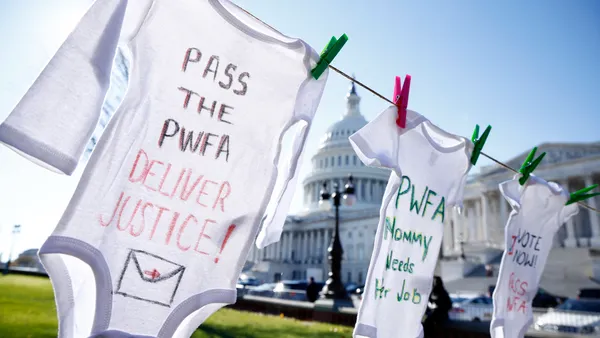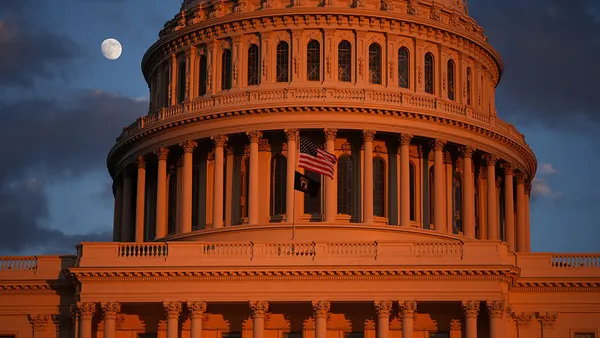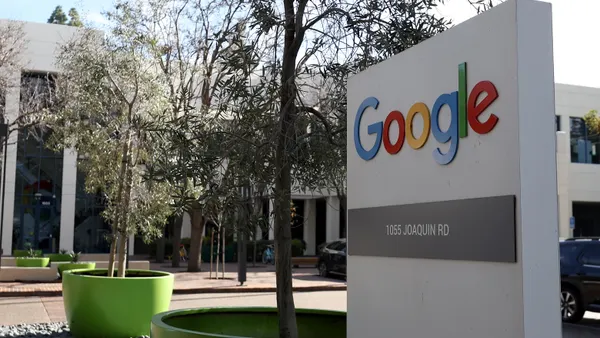Dive Brief:
- A Pennsylvania federal district court should force the University of Pennsylvania to comply with a subpoena requesting information in an ongoing investigation of alleged discrimination against Jewish employees at the institution, the U.S. Equal Employment Opportunity Commission said in a Tuesday filing.
- EEOC said it first issued the subpoena in July, to which Penn submitted a petition to revoke the subpoena in its entirety. EEOC denied the petition but served Penn with a partially modified subpoena that it said addressed objections raised by the university. EEOC claimed Penn did not comply with a response deadline of Sept. 23.
- The agency asked the U.S. District Court for the Eastern District of Pennsylvania to direct Penn to produce all requested information, including data pertaining to discrimination complaints made by employees as well as participants in listening sessions held by a Penn antisemitism task force. In an email, a Penn spokesperson denied EEOC’s claims, stating that the university “responded in good faith to all the subpoena requests” but objected to providing personal and confidential information of Jewish employees without their consent.
Dive Insight:
The filing is part of an ongoing EEOC investigation as well as a broader series of inquiries regarding alleged Jewish discrimination and antisemitism at prominent U.S. universities. In a press release, EEOC said Tuesday’s filing stemmed from a 2023 commissioner’s charge filed by Andrea Lucas, its current chair.
Per court documents, EEOC said the charge alleged a pattern of antisemitic behavior and that Penn subjected Jewish employees to a hostile work environment based on national origin, religion and race.
“An employer’s obstruction of efforts to identify witnesses and victims undermines the EEOC’s ability to investigate harassment,” Lucas said in EEOC’s press release. “In such cases, we will seek court intervention to secure full cooperation.”
The Penn spokesperson told HR Dive that Penn “cooperated extensively with the EEOC, providing over 100 documents, totaling nearly 900 pages” but refused to provide lists of, or personal contact information for, Jewish employees, Jewish student employees and persons associated with Jewish organizations.
The spokesperson also denied EEOC’s claims that the university obstructed access to employees who may have submitted discrimination claims and said that it provided the information of employees who consented to doing so. EEOC rejected Penn’s offer to help the agency reach employees who were willing to speak with EEOC, the spokesperson said.
“Penn has worked diligently to combat antisemitism and protect Jewish life on campus,” the spokesperson said.
The agency’s investigation mirrors similar probes of alleged antisemitic discrimination at California State University and Columbia University. Faculty members at Columbia and Columbia-affiliated Barnard College reportedly received text messages from EEOC asking them to complete a survey last April.
Penn and other institutions drew criticism and scrutiny for their handling of on-campus demonstrations and other related incidents amid the Israel-Hamas war. Former Penn President Elizabeth Magill was among the administrators asked to testify before the U.S. House of Representatives in 2023 — just months after the conflict began — on responding to antisemitism. House Republicans later launched their own probe of Penn’s and other universities’ antisemitism responses, Higher Ed Dive reported.
Penn convened an antisemitism task force in response to these developments, which published a report in May 2024 containing findings and recommendations for the university and condemning antisemitism.
Lucas and EEOC have since publicly encouraged workers who have experienced antisemitism on college campuses to submit employment discrimination charges to the agency.
















